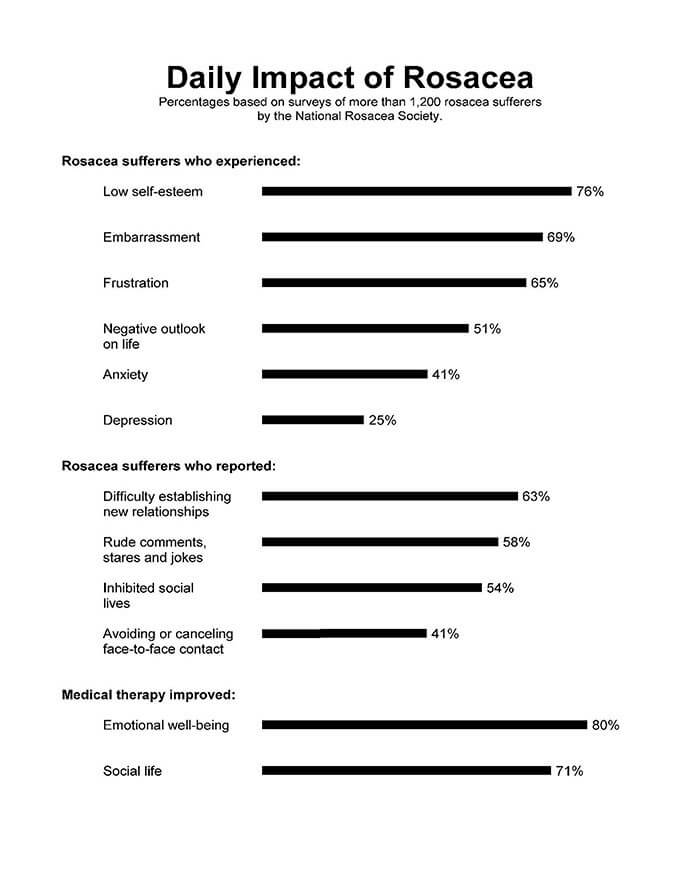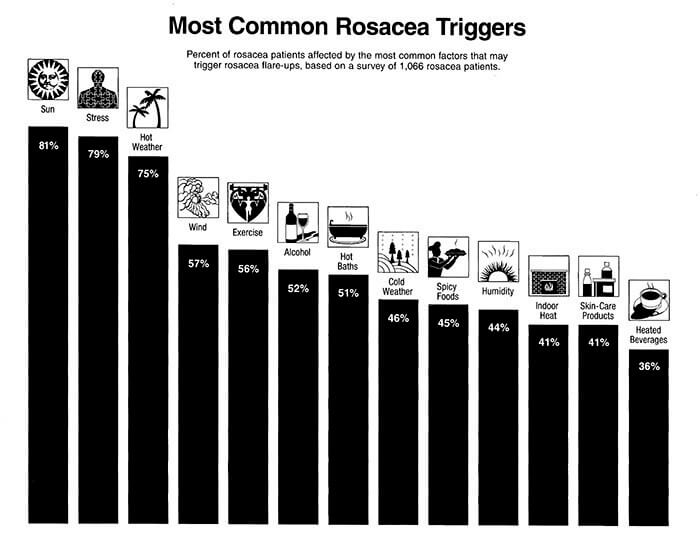Rosacea Awareness Month to Emphasize Benefits of Achieving Clear Skin
BARRINGTON, Illinois (February 11, 2019) – Although a cure for rosacea has yet to be discovered, advances in medical therapy have made it increasingly possible for those who suffer from this chronic disorder to achieve clear skin. At the same time, recent surveys have shown just how important this attainable goal is to patients’ physical and mental well-being.

